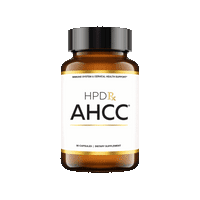GR-1 and RC-14 (The ingredients in Pro-Fem) effective against BV according to a double-blind, randomized, placebo-controlled study
A double-blind, randomized, placebo-controlled study is a type of scientific study designed to evaluate the effectiveness of a new treatment or intervention. This type of study is generally considered to be the most reliable and rigorous type of study in the field of medicine.
In this placebo-controlled study, one group of participants received Lactobacillus rhamnosus GR-1 and Lactobacillus reuteri RC-14 vaginal probiotics (the treatment under investigation), while the other group received a placebo that resembled the real treatment but did not contain any active ingredients. Randomization was performed to ensure that every participant had an equal chance of being assigned to either the experimental or placebo group. The participants and researchers were double-blinded, meaning that neither knew which participants were receiving the experimental treatment and which were receiving a placebo. These steps ensured minimal bias and optimal reliability of the results.
The participants of this study were women above 18 years old who were diagnosed with vaginal infections—such as BV, candidiasis, trichomoniasis, or a combination of these—and who met the criteria for a baseline diagnosis of BV. Upon vaginal swabbing after the study period, it was found that the normal balance of microorganisms in the vagina was restored among the experimental group at a significantly higher rate compared to the placebo group.
This study's competitive edge is that it confirms previous scientific literature that vaginal probiotics are more effective than metronidazole for BV. Metronidazole is a type of antibiotic commonly used to treat BV and is associated with a range of side effects, such as nausea and vomiting, diarrhea or constipation, dry mouth, headache, dizziness, and the presence of a metallic taste in the mouth. In contrast, vaginal probiotic intake displayed none of these side effects.
Pro-Fem is Effective at Restoring Vaginal pH Balance
BV is a condition in which the normal balance of bacteria in the vagina is disrupted and an overgrowth of certain types of bacteria occurs. This can lead to symptoms such as abnormal vaginal discharge, an unpleasant odor, and itching or burning in the vaginal area. BV is the most common cause of abnormal vaginal discharge in women of childbearing age.
The probiotic strains in Pro-Fem, Lactobacillus rhamnosus GR-1 and Lactobacillus reuteri RC-14, are types of bacteria that are part of the normal vaginal microbiota. In a healthy vagina, these bacteria are present in a balanced state along with other types of microorganisms, and they play a role in maintaining the overall health of the vagina. However, in women with BV, the balance of the vaginal microbiota is disrupted, and the normal predominance of Lactobacillus bacteria is lost. This can lead to an overgrowth of other types of bacteria, which can cause the symptoms of BV.
Designed specifically for women's needs, Pro-Fem Vaginal Probiotics helps maintain yeast, pH, and bacterial balance, including increasing the presence of Lactobacillus rhamnosus GR-1 and Lactobacillus reuteri RC-14, to enhance natural urinary tract and vaginal health.
The Science of Pro-Fem, GR-1 and RC-14
Both Lactobacillus strains are commonly found in the human body; GR-1 was first isolated from a healthy woman's distal urethra in 1980, while RC-14 was isolated from a healthy woman's vagina in 1985. These strains were discovered and patented by Chr. Hansen, one of the most respected bioscience companies worldwide and the partner manufacturer of Pro-Fem. Ever since their discovery, these strains have been tested for more than 20 years in over 30 human clinical studies. GR-1 and RC-14 are the world's most documented probiotic strains for women's urogenital health and have been used safely and effectively for many years.
Talk to your OB-GYN or primary care physician about all the positive benefits from Pro-Fem vaginal probiotics.
References
Chr. Hansen Holding A/S. UREX™ – The world’s most documented probiotics for women’s urogenital health. CHR. HANSEN Improving food & health. https://www.chr-hansen.com/en/human-health-and-probiotics/our-probiotic-strains/urex


